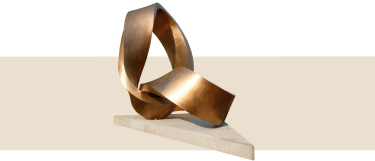
Excellence Strategy
With its strategy “The Comprehensive Research University – Heidelberg: The Future since 1386” along with two Clusters of Excellence, Heidelberg University was successful in both funding lines of the Excellence Strategy of the federal and state governments. Accordingly, since 2019 it has been funded as part of a group of ten Universities of Excellence and one Excellence Alliance.
Building on its success in all three funding lines of the first and second rounds of the Excellence Initiative, Heidelberg University will exploit its special strengths in order to drive forward innovation in research, teaching and transfer, and contribute to finding solutions for complex societal challenges. Applicants for the Universities of Excellence funding line needed to submit two successful cluster initiatives – three in the case of university consortia. At Heidelberg University, work has started in the two Clusters of Excellence 3D Matter Made to Order – jointly with the Karlsruhe Institute of Technology – and STRUCTURES.
University of Excellence
In the Excellence Strategy, Heidelberg University is committed to its strategy as a comprehensive research university. On the one hand, the university promotes its individual disciplines and, on the other, it makes a great effort to bring together skills from various disciplines and to create new structures and research foci. In order to cross-link its four profile-forming Fields of Focus (FoFs) in the life sciences, natural sciences, humanities, and social and behavioural sciences, Heidelberg University is building new bridges across disciplinary borders in the Excellence Strategy with two flagship initiatives. Engineering Molecular Systems (FI EMS) will act as a pioneer for nanoscale engineering. Transforming Cultural Heritage (FI TCH) will redefine cultural heritage as a result of dynamically changing social and political negotiations. Furthermore, three interdisciplinary institutions – Marsilius Kolleg, the Heidelberg Center for the Environment and the Interdisciplinary Center for Scientific Computing – connect all areas of the university and serve as incubators for new research initiatives. Beside trans- and interdisciplinary cooperation in the framework of the Excellence Strategy, Heidelberg University is particularly intensifying the transfer of research results and scientific findings into society.
The aim is to recruit eminent academics and excellent early-career researchers from Germany and abroad and to retain them at the university. It also wants to create an attractive research environment with an outstanding infrastructure and to allocate resources consistently on the basis of performance. The university attaches great importance to the principle of equal opportunity and to supporting female scientists. As a major societal stakeholder, which is promoting responsible knowledge transfer in cooperation with its strong local, regional and international partners, Heidelberg University is actively helping to shape the future.
Clusters of Excellence
3D Matter Made to Order
“3D Matter Made to Order”, the joint Cluster of Excellence by the Karlsruhe Institute for Technology and Heidelberg University, pursues a highly interdisciplinary approach combining natural and engineering sciences. The cluster concentrates on three-dimensional additive manufacturing techniques, from the molecular level to macroscopic dimensions.
Flagship Initiatives
Engineering Molecular Systems
The development of new materials, methods, technologies, devices and therapies at the molecular level using both natural and synthetically made components is the aim of the Flagship Initiative “Engineering Molecular Systems“, in which scientists from various institutions and disciplines work together.
Transforming Cultural Heritage
With the aim of placing cultural heritage at the centre of research, teaching and transfer in an innovative form, the Flagship Initiative "Transforming Cultural Heritage" brings together the disciplinary and region-specific expertise of the Heidelberg University in the research and management of cultural heritage.
Topics
Heidelberg University International
Heidelberg University is tied into a worldwide network of research and teaching collaborations. The primary aim of further expanding cooperation with partner institutions internationally is to use the various expertise and perspectives to leverage additional research potential and to qualify young scientists for international competition.
Equal Opportunities and Diversity
Semper apertus – always open, that is the traditional motto of Heidelberg University. It is a commitment to the principle of diversity and to equal opportunities for its members, regardless of sex, age, religion or origin. Heidelberg University stands for equal opportunities and the compatibility of professional work and family life.
Quality assurance and development
By implementing a holistic quality management system – heiQUALITY – which encompasses all areas of performance, Heidelberg University has taken a decisive step towards a systemisation of quality management processes, and has hereby gained additional knowledge with regard to important quality aspects.
Research-based teaching and learning
Excellent teaching in Heidelberg is distinguished by the university's unique proximity to research. The international research strength of Heidelberg University is therefore reflected directly in its teaching and the early exposure of young academics to the world of research.
Call for Proposals
Mobility in International Research Collaborations
Within the framework of the Excellence Strategy, funds are available to promote promoting mobility in international research collaborations. Special consideration shall be given to: multilateral cooperation projects with international partner institutions, development of thematic networks, and cooperation projects that are not apt for current funding by DAAD, DFG etc.
International Guest Professors
Within the framework of the Excellence Strategy, funds are available for guest stays by international guest professors. The objective of this funding line is to bring expert knowledge of renowned international academics to Heidelberg University, to increase and complement the research potential in certain fields, and to extend and internationalize the range of research-based teaching.
Bodies and Commissions
Academic Advisory Council
The Academic Advisory Council (AAC) advises the Rectorate on strategic issues. The committee is made up of eminent scholars from international universities and research institutions and high-ranking representatives of industry and senior academics from Heidelberg University.










